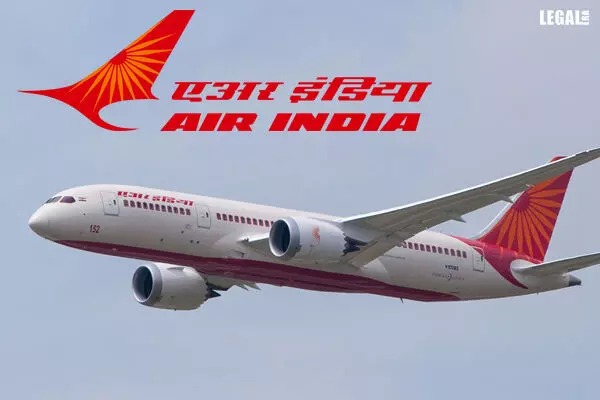- Home
- News
- Articles+
- Aerospace
- Artificial Intelligence
- Agriculture
- Alternate Dispute Resolution
- Arbitration & Mediation
- Banking and Finance
- Bankruptcy
- Book Review
- Bribery & Corruption
- Commercial Litigation
- Competition Law
- Conference Reports
- Consumer Products
- Contract
- Corporate Governance
- Corporate Law
- Covid-19
- Cryptocurrency
- Cybersecurity
- Data Protection
- Defence
- Digital Economy
- E-commerce
- Employment Law
- Energy and Natural Resources
- Entertainment and Sports Law
- Environmental Law
- Environmental, Social, and Governance
- Foreign Direct Investment
- Food and Beverage
- Gaming
- Health Care
- IBC Diaries
- In Focus
- Inclusion & Diversity
- Insurance Law
- Intellectual Property
- International Law
- IP & Tech Era
- Know the Law
- Labour Laws
- Law & Policy and Regulation
- Litigation
- Litigation Funding
- Manufacturing
- Mergers & Acquisitions
- NFTs
- Privacy
- Private Equity
- Project Finance
- Real Estate
- Risk and Compliance
- Student Corner
- Take On Board
- Tax
- Technology Media and Telecom
- Tributes
- Viewpoint
- Zoom In
- Law Firms
- In-House
- Rankings
- E-Magazine
- Legal Era TV
- Events
- Middle East
- Africa
- News
- Articles
- Aerospace
- Artificial Intelligence
- Agriculture
- Alternate Dispute Resolution
- Arbitration & Mediation
- Banking and Finance
- Bankruptcy
- Book Review
- Bribery & Corruption
- Commercial Litigation
- Competition Law
- Conference Reports
- Consumer Products
- Contract
- Corporate Governance
- Corporate Law
- Covid-19
- Cryptocurrency
- Cybersecurity
- Data Protection
- Defence
- Digital Economy
- E-commerce
- Employment Law
- Energy and Natural Resources
- Entertainment and Sports Law
- Environmental Law
- Environmental, Social, and Governance
- Foreign Direct Investment
- Food and Beverage
- Gaming
- Health Care
- IBC Diaries
- In Focus
- Inclusion & Diversity
- Insurance Law
- Intellectual Property
- International Law
- IP & Tech Era
- Know the Law
- Labour Laws
- Law & Policy and Regulation
- Litigation
- Litigation Funding
- Manufacturing
- Mergers & Acquisitions
- NFTs
- Privacy
- Private Equity
- Project Finance
- Real Estate
- Risk and Compliance
- Student Corner
- Take On Board
- Tax
- Technology Media and Telecom
- Tributes
- Viewpoint
- Zoom In
- Law Firms
- In-House
- Rankings
- E-Magazine
- Legal Era TV
- Events
- Middle East
- Africa
Supreme Court Upholds NCDRC Order: Directs Air India to Pay Rs. 2.03 Lakh Compensation to Passenger for Baggage Loss

Supreme Court Upholds NCDRC Order: Directs Air India to Pay Rs. 2.03 Lakh Compensation to Passenger for Baggage Loss
The Supreme Court has refused to interfere with the order of the National Consumer Disputes Redressal Commission (NCDRC) that directed Air India to pay Rs. 2.03 lakhs in compensation to a distressed passenger for the loss of his baggage during a domestic flight.
The division judge’s bench of Justices Hima Kohli and Rajesh Bindal, while dismissing the appeal filed by Air India against the order of the NCDRC, observed:
“In the peculiar facts and circumstances of the present case, we are not inclined to interfere with the order impugned herein under Article 136 of the Constitution of India.”
On 7 February, 2023, the NCDRC had dismissed an appeal filed by Air India, and directed the airline to pay the balance 50 per cent compensation out of the Rs. 2.03 lakhs to the Complainant who lost his luggage. On an earlier occasion, the NCDRC had granted a stay and directed Air India to deposit 50 per cent of the compensation awarded by the district forum, which was later upheld by the state forum. Since the carrier had already deposited 50 per cent of the compensation amount, the NCDRC later directed payment of the balance amount to the complainant.
The passenger/complainant- Mr. Tushar Kothari who was left devasted when his baggage went missing during an Air India flight from Nagpur to Goa. Despite the airline’s promises of hassle-free travel experience.
When the complainant contacted Air India, the response of the airline was far from satisfactory, leaving him with no choice but to file a complainant with the NCDRC.
After examining the evidence and hearing the parties involved, the NCDRC ruled in favor of Mr. Kothari, holding Air India liable for the loss of his baggage. Moreover, the commission awarded him Rs. 2.03 lakhs as compensation, taking into account the value of lost items, the emotional distress caused, and the airline’s lack of accountability.
Aggrieved with the NCDRC’s order, Air India filed an appeal before the Apex Court, seeking a reprieve from the substantial compensation imposed on them.
Air India contended that as per the provisions of Citizens Charter/Contract of Carriage Rule 1972 on Domestic Travel & Bureau of Civil Aviation Security (Ministry of Civil Aviation), the Complainant was required to declare the value of the articles of the misplaced bag.
The Apex Court bench emphasized that airlines must be held accountable for any lapses leading to the loss of passenger’s baggage, as it causes significant distress and inconvenience to travelers.
The Apex Court subsequently, refused to interfere with the order of the NCDRC.



